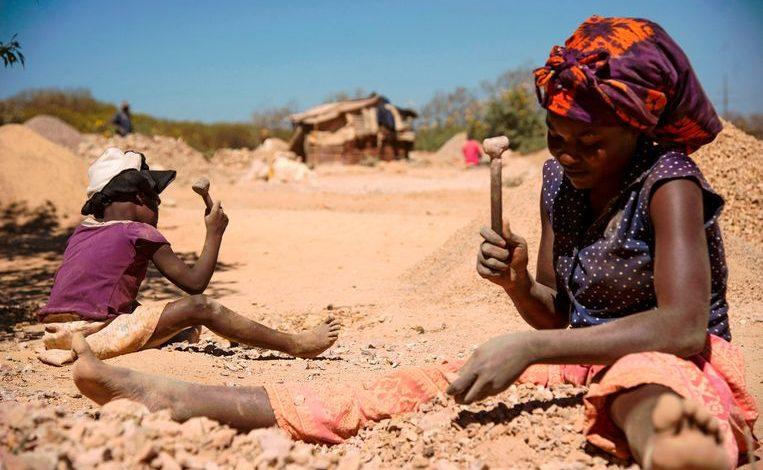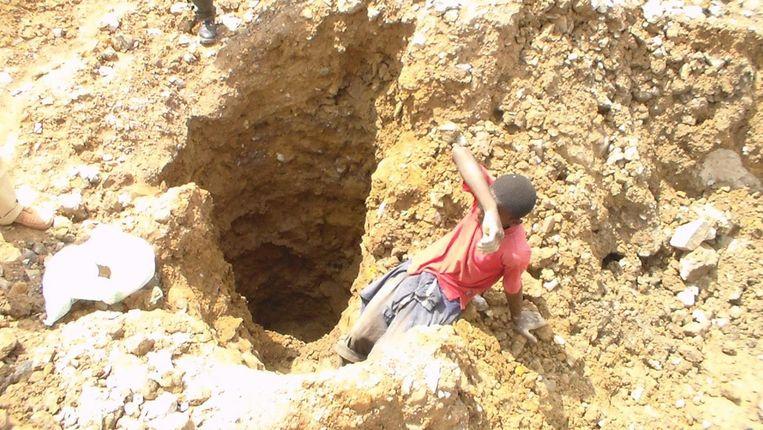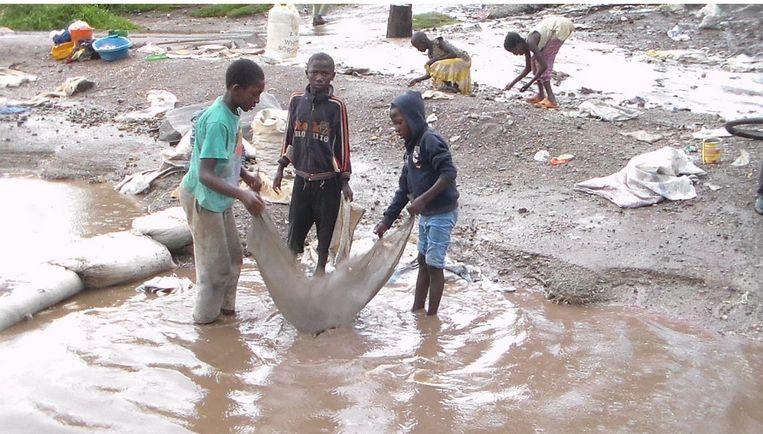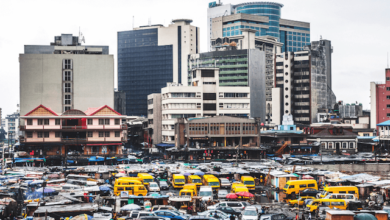Activist involved in cobalt trial against US tech giants threatened with death

A Congolese human rights activist had to flee his home country with his family because of his involvement in a lawsuit against the world’s largest technology companies. The process revolves around their involvement in the deaths of children in Congolese cobalt mines.
The American organization International Rights Advocates filed a group complaint against Apple, Microsoft, Tesla, Alphabet (Google), and Dell in the name of fourteen clients before a court in Washington in December. The latter are family members of children who died as a result of their work in the cobalt mines. They accuse the companies of complicity in the death and injuries of their children.

Auguste Mutombo is the director of Alternatives Plus, an NGO in Congo that is committed to improving working conditions in the artisanal mining sector. He helped with the fieldwork that formed the basis for the process. Shortly after the information about the trial was made public, however, he received dozens of death threats from people who claimed to be part of the mining cooperatives in person, by telephone, and by text message.
However, going to the police was not an option for Mutombo: he did not trust the authorities to protect him. Instead, he fled with his wife and children to Zambia, where he hid in a secret location. Mutombo recently returned to his country; there he bringing the matter to the public to force the authorities to protect him and his family.
The families who initiated the trial also receive protection, says Siddharth Kara, a human rights activist and teacher at Harvard University, where he specializes in human trafficking and modern slavery. “We are following the situation in the DRC very closely. We (he and Mutombo, ed.) Are the only two people who have contact with the prosecutors and our team on the field and we have taken steps to ensure their safety.”
Cobalt is a vital component of rechargeable lithium batteries. More than 60 percent of the cobalt is mined in the Congo, but the conditions in the traditional Congolese cobalt mines have been controversial for some time. “The tech boom is causing a huge increase in the demand for cobalt,” International Rights Advocates said last year when the news of the lawsuit was announced.
“But it is one of the most extreme contrasts imaginable. Cobalt is mined by children in the Congo under hazardous conditions, straight from the Stone Age. They get one or two dollars a day to provide cobalt for expensive gadgets for some of the richest companies in the world.”

The companies involved claim that they are all committed to the sustainable exploitation of precious metals and that they respect the human rights of workers. However, according to International Rights Advocates, multinationals are well aware of malpractice.
Glencore
The complaint repeatedly cites the Swiss raw material company Glencore, the largest cobalt producer in the world. In a response on the website, Glencore states that the charge is not against them. Glencore “does not tolerate any form of child exploitation and does not buy cobalt or copper from so-called artisan mines,” the company said.
Earlier this year, Umicore signed an agreement with Glencore for the supply of cobalt for battery materials. The materials technology group emphasized that the mining activities are entirely in line with their framework for the sustainable supply of cobalt. This framework excludes artisanally mined cobalt and all forms of child labor.




